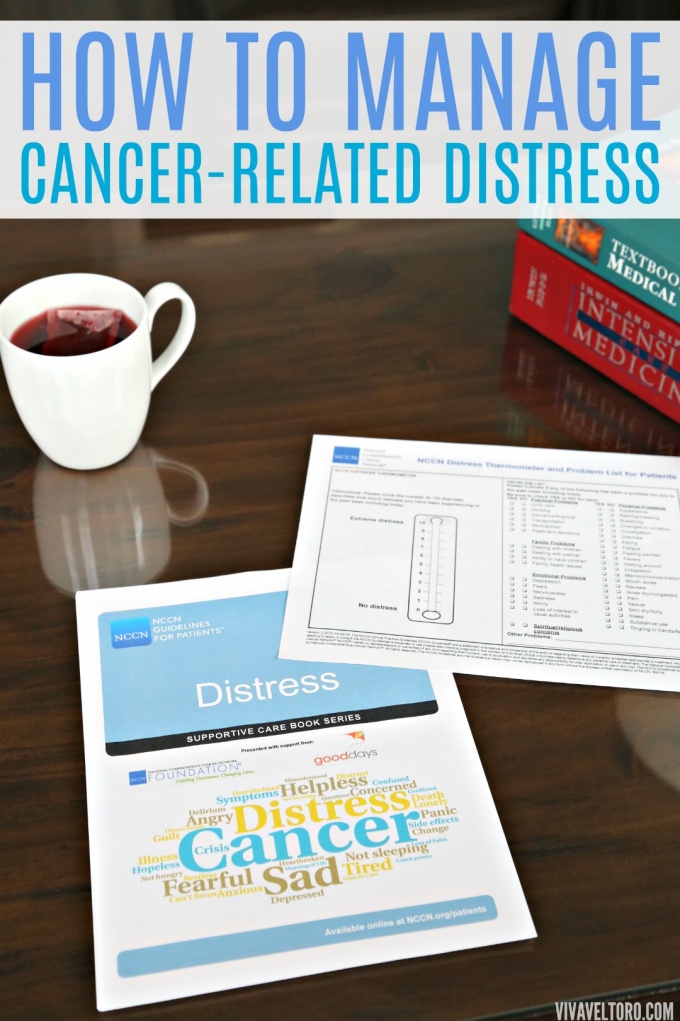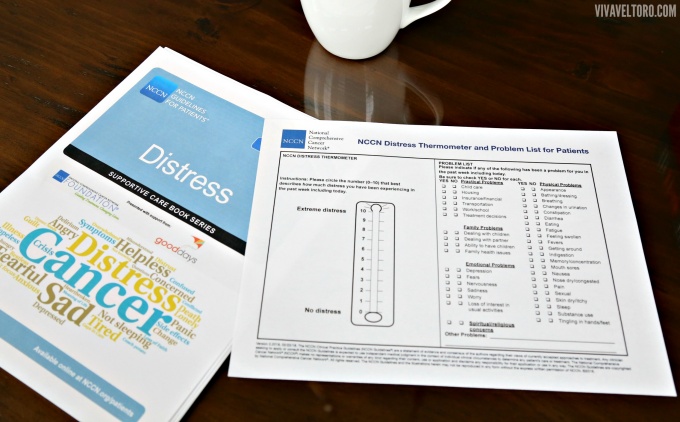During my career as a nurse practitioner, I took care of thousands of patients with life-threatening illnesses like cancer. I learned early on that illness-related distress is unique to each person. There is no "one-size-fits-all" approach to managing it. I've partnered with Med-IQ to generate awareness around cancer-related distress and anxiety for patients and caregivers. Be sure to check out the link below to take a survey if this sounds like something you're experiencing.

I haven't shared much about my life before I had kids. It feels like a lifetime ago now, but just 6 years ago I was an Acute Care Nurse Practitioner. I was working in one of the busiest medical centers in Florida. My daily responsibilities included rounding on the patients, adjusting their medications, and performing procedures. I routinely performed bronchoscopies or central venous catheter placement. I also formulated care plans for patients and their family members. Many times, my patients weren't conscious. Therefore, discussing their plan of care and their wishes with their family members was all I could do.
I will never forget the morning when I checked in with the wife of one of our new patients. He'd just had emergency surgery for a bowel obstruction caused by a tumor. His wife looked absolutely exhausted. She said, "I feel guilty for saying this, but I'm so glad that he's here. I can leave for a little while and get some rest. He hasn't been sleeping because of the pain and I don't think I've slept in a week." This was one of the first times when I looked beyond the patient and noticed the distress of the caregiver. It really shifted my approach and bedside manner and I'm grateful that the conversation happened early in my career.
If you've ever suffered from an illness or cared for a loved one who's gotten sick, you know that your life can go from complete normalcy to complete chaos in just a matter of moments. That's why I wanted to partner with Med-IQ to help bring awareness to cancer-related distress and anxiety. This is for patients and their caregivers. Med-IQ is an accredited medical education company that provides an exceptional educational experience for physicians, nurses, pharmacists, and other healthcare professionals. They coordinated a call between myself and Lillie D. Shockney, RN, BS, MAS, ONN-CG, University Distinguished Service Professor of Breast Cancer and Professor of Surgery, Johns Hopkins University School of Medicine, to discuss distress and how we can help more people through these difficult emotions.
What is cancer-related distress?
According to the National Comprehensive Cancer Network, cancer-related distress is defined as an unpleasant experience of a mental, physical, social, or spiritual nature that can affect the way you think, feel, or act. Distress may make it harder to cope with having cancer, its symptoms, or its treatment.
What does cancer-related distress look like?
Distress or anxiety can look different for every person. As Ms. Shockney told me, "It’s not necessarily what happens, but how the patient reacts to it.” One person may experience overwhelming sadness while another harbors extreme anger. Some people may question their faith while others cling more closely to it. Some patients or caregivers might pull away from those around them. They do so while questioning their ability to still fulfill their duties as wife, mother, husband, father, etc. There can even be physical manifestations like insomnia, weight gain or loss, and panic attacks.
Cancer-related distress is truly unique and unpredictable. These feelings of distress and anxiety can have a profound effect on a patient’s or caregiver's quality of life.
How to talk to your healthcare team about distress and get help
Thankfully, distress management is now the standard of care for patients with cancer. Healthcare professionals should include distress screening, treatment planning, and referral to experts when distress is noted. A patient or caregiver might not be in distress at a particular doctor visit. But, it may come on acutely or evolve over time. It's in a patient’s or caregiver's best interest to have it addressed as soon as possible.
If you're feeling distressed or anxious, seek help from your healthcare team. Ask your doctor the following questions to get the ball rolling:
- Is this symptom related to distress?
- How can you help me?
- What can I do to relieve my distress?
- What help will my insurance cover?
These questions aren't just for the patient though. Being a caregiver can be a heavy burden to some. Caregivers should not be afraid to speak up at doctor appointments to address their own distress and anxiety.

Tips to manage cancer-related distress
If you find yourself feeling overwhelmed and like you can't do it all, simply don't. Now is the time to lean on your family and friends for support and help. Think of some things that you can delegate to others. When others ask what they can do to help, give them a task. People really do want to help others in need so let them help you. Let your friend bring you a meal. Even if you aren't hungry; you'll still want to make sure your family is eating. Ask your sister to do your grocery shopping for you. When your cousin asks how she can help, tell her you're drowning in laundry.
Another thing you can do to protect your mental health is to limit the updates you give to the masses. It's a blessing to have support and know that people care about how you're doing. But, it can be mentally draining to tell the same update over and over. Consider sending an email to all of your friends and family members at the same time to minimize your stress.
Sometimes it can be helpful to talk to others who have been through illness before. Seek out support groups, whether it be online or in person. Here you can openly talk about your fears and anxiety. You may also want to seek professional help. CancerCare provides free, professional support services for caregivers and loved ones, as well as caregiving information and additional resources.
I was compensated by Med-IQ through educational grants from AbbVie, Astellas, and Genentech to write about managing distress for cancer patients and their caregivers. All opinions are my own.
These links are being provided as a convenience and for informational purposes only; they are not intended and should not be construed as legal or medical advice nor are they endorsements of any healthcare provider or practice. Med-IQ bears no responsibility for the accuracy, legality, or content of the external sites or for that of subsequent links. Contact the external sites for answers to questions regarding their content.


Leela says
I just completed the survey. I was diagnosed with cancer about 1 1/2 years ago and it has been rough.